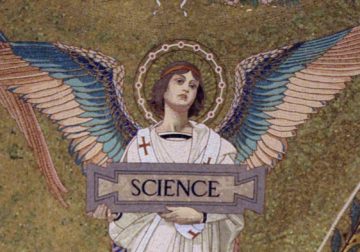Louise Liebeskind in The New Atlantis:
 Francis Bacon is known, above all, for conceiving of a great and terrible human project: the conquest of nature for “the relief of man’s estate.” This project, still ongoing, has its champions. “If the point of philosophy is to change the world,” Peter Thiel posits, “Sir Francis Bacon may be the most successful philosopher ever.” But critics abound. Bacon stands accused of alienating human beings from nature, abandoning the wisdom of the ancients, degrading a philosophy dedicated to the contemplation of truth, and replacing it with something cruder, a science of power.
Francis Bacon is known, above all, for conceiving of a great and terrible human project: the conquest of nature for “the relief of man’s estate.” This project, still ongoing, has its champions. “If the point of philosophy is to change the world,” Peter Thiel posits, “Sir Francis Bacon may be the most successful philosopher ever.” But critics abound. Bacon stands accused of alienating human beings from nature, abandoning the wisdom of the ancients, degrading a philosophy dedicated to the contemplation of truth, and replacing it with something cruder, a science of power.
In The Abolition of Man, C. S. Lewis goes so far as to compare Bacon to Christopher Marlowe’s Faustus:
You will read in some critics that Faustus has a thirst for knowledge. In reality, he hardly mentions it. It is not truth he wants … but gold and guns and girls. “All things that move between the quiet poles shall be at his command” and “a sound magician is a mighty god.” In the same spirit Bacon condemns those who value knowledge as an end in itself: this, for him, is to use as a mistress for pleasure what ought to be a spouse for fruit. The true object is to extend Man’s power to the performance of all things possible.
Lewis draws the final phrase of this critique from Bacon’s New Atlantis, the 1627 utopian novella from which this journal takes its name. But why would a publication like The New Atlantis, dedicated to the persistent questioning of science and technology, name itself after a philosopher’s utopian dreams about magicians on the verge of becoming mighty gods?
More here.
